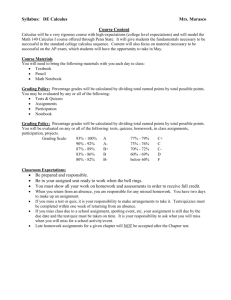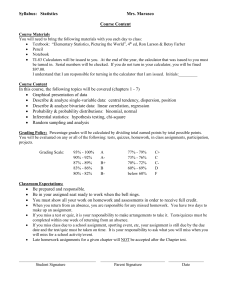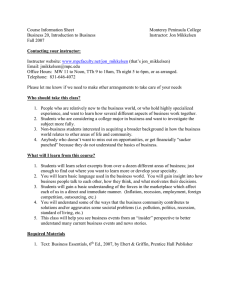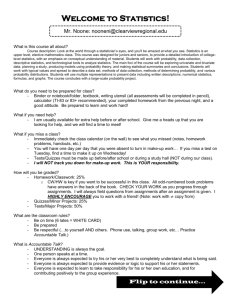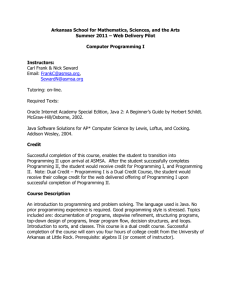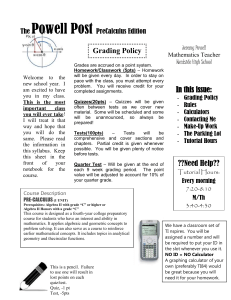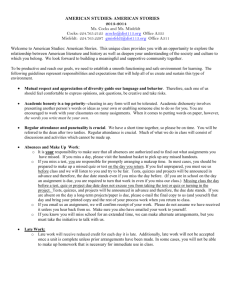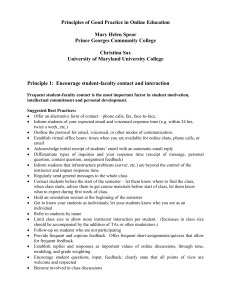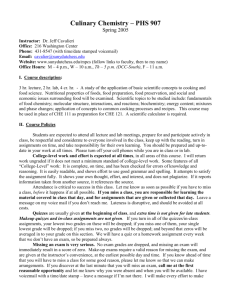Special Topics in Japanese - University of Mississippi
advertisement
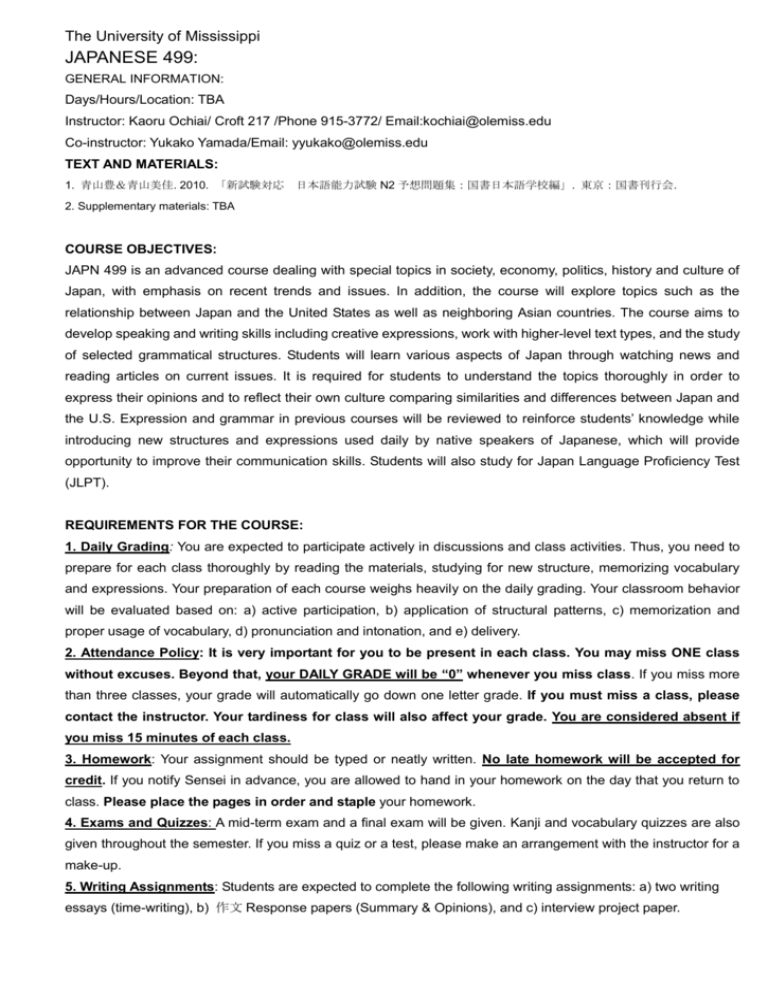
The University of Mississippi JAPANESE 499: GENERAL INFORMATION: Days/Hours/Location: TBA Instructor: Kaoru Ochiai/ Croft 217 /Phone 915-3772/ Email:kochiai@olemiss.edu Co-instructor: Yukako Yamada/Email: yyukako@olemiss.edu TEXT AND MATERIALS: 1. 青山豊&青山美佳. 2010. 「新試験対応 日本語能力試験 N2 予想問題集:国書日本語学校編」. 東京:国書刊行会. 2. Supplementary materials: TBA COURSE OBJECTIVES: JAPN 499 is an advanced course dealing with special topics in society, economy, politics, history and culture of Japan, with emphasis on recent trends and issues. In addition, the course will explore topics such as the relationship between Japan and the United States as well as neighboring Asian countries. The course aims to develop speaking and writing skills including creative expressions, work with higher-level text types, and the study of selected grammatical structures. Students will learn various aspects of Japan through watching news and reading articles on current issues. It is required for students to understand the topics thoroughly in order to express their opinions and to reflect their own culture comparing similarities and differences between Japan and the U.S. Expression and grammar in previous courses will be reviewed to reinforce students’ knowledge while introducing new structures and expressions used daily by native speakers of Japanese, which will provide opportunity to improve their communication skills. Students will also study for Japan Language Proficiency Test (JLPT). REQUIREMENTS FOR THE COURSE: 1. Daily Grading: You are expected to participate actively in discussions and class activities. Thus, you need to prepare for each class thoroughly by reading the materials, studying for new structure, memorizing vocabulary and expressions. Your preparation of each course weighs heavily on the daily grading. Your classroom behavior will be evaluated based on: a) active participation, b) application of structural patterns, c) memorization and proper usage of vocabulary, d) pronunciation and intonation, and e) delivery. 2. Attendance Policy: It is very important for you to be present in each class. You may miss ONE class without excuses. Beyond that, your DAILY GRADE will be “0” whenever you miss class. If you miss more than three classes, your grade will automatically go down one letter grade. If you must miss a class, please contact the instructor. Your tardiness for class will also affect your grade. You are considered absent if you miss 15 minutes of each class. 3. Homework: Your assignment should be typed or neatly written. No late homework will be accepted for credit. If you notify Sensei in advance, you are allowed to hand in your homework on the day that you return to class. Please place the pages in order and staple your homework. 4. Exams and Quizzes: A mid-term exam and a final exam will be given. Kanji and vocabulary quizzes are also given throughout the semester. If you miss a quiz or a test, please make an arrangement with the instructor for a make-up. 5. Writing Assignments: Students are expected to complete the following writing assignments: a) two writing essays (time-writing), b) 作文 Response papers (Summary & Opinions), and c) interview project paper. GRADING POLICY Students' grades will be based on successful completion of all the assignments of above 1)-5). Final grades will be based on the percentage of total possible points a student has earned by the end of the semester for assignments, projects, quizzes, tests, and participation in class activities as follows: A = 90% to 100%, B = 80% to 89%, C = 70% to 79%, D = 60% to 69%, F = 59% or less Daily Grading 20 % Homework 10% Quizzes 10%(Kanji & Vocab Quiz) Writing 10 % (Timed W, Interview Report, Response papers) Project (Interview) 20% Mid-term 15 % Final Exam 15 % Total 100 % Students with Disabilities: Please contact the Office of Student Disability Services. Flexibility Clause:The requirements/assignments and evaluation procedures are subject to change. C Grade Policy: No grade lower than C will be counted in classes students use toward majoring or minoring in Modern Languages.

